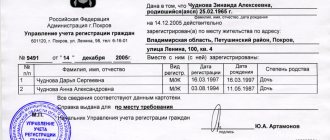Updated: January 9, 2021, at 20:59
Any transactions involving real estate are accompanied by paperwork and follow the established procedure. This is determined by law. Ideal situations are described in theory, however, in practice everything is different . There are nuances that complicate the procedure. For example, unfulfilled financial obligations by a citizen regarding living space. Then how to privatize an apartment when there are debts and how possible is this? It's worth looking into.
The legislative framework
According to the law, the presence of utility debt is not considered a sufficient basis for canceling the privatization of housing. The essence of the procedure is the transfer of municipal real estate into the hands of a civilian. Debts have nothing to do with this.
Due to accumulated debt, the municipality may terminate the social rent agreement with the citizen. And initiate further eviction of the negligent tenant. Termination occurs through the court, where the plaintiff presents documents confirming the existence and amount of debt. In particular, the employer stopped paying housing and communal services for six months or longer .
In practice, the administration rarely deals with such matters. It usually takes a long time to complicate the preparation of some of the papers required for privatization.
However, the procedure may be obstructed by officials who are affected by the person's financial obligations. For example, representatives of the management company or local government. Not wanting an irresponsible tenant to become the future owner of the apartment.
According to the law, any citizen has the right to participate in privatization once, receiving part or all of state real estate. This is a free procedure, i.e. He doesn’t pay for the apartment itself.
Minor children can participate twice - once at a young age, on the initiative of their parents, and a second time later, after reaching adulthood. This is related to the child’s right to have housing. When a family decides to privatize an apartment (step-by-step instructions) where everyone lives together, they are obliged to include children in the procedure. Accordingly, allocate part of the common real estate to them as their own.
The country's President V. Putin recently signed a separate law officially extending the privatization period for citizens. According to it, the free period established earlier is cancelled. Initially, the authorities wanted to make the procedure paid, i.e. those wishing to appropriate municipal property had to pay for it an amount corresponding to the market value.
During the validity of the old law, under which free re-registration was carried out, the procedure was extended 10 times (minimum).
Privatization closes many questions regarding the disposal of property; selling a non-privatized apartment, for example, is difficult, although there are ways; such problems and risks do not arise with personal housing.
Now the main theses of privatization are described in the text of Law No. 1541 -1.
What can and cannot be re-registered
| CAN | IT IS FORBIDDEN |
| Property complexes located on their own land plots | Dormitories (rooms inside) |
| Buildings, separate structures with territory | Premises whose condition is recognized by specialists as emergency or dilapidated |
| Current construction projects | Service housing |
| Historical and cultural monuments (if local authorities allow) | Houses, apartments located inside ZATO |
| Shares from joint stock companies | |
| Land. In addition to lands intended for municipal or state needs | |
| Residential premises (rooms, apartments, etc.) |
The law defines the methods of transferring state real estate:
1) State or local enterprises will turn into joint-stock companies.
2) The object is sold through an open auction (Article 18). If all participants made similar offers (set the same price), the winner will be the one who completed this earlier than the others in time.
3) Competition - a public offer or other form of bidding is made. Used when an auction is declared invalid.
4) Property is made as a contribution, replenishing the capital of a private company.
Each option is described specifically; in total, there are 11 ways of appropriating municipal property by private individuals.
Federal Law-178 describes the procedure itself - step-by-step actions of the initiator, required documents. The name of the authorities where he should apply.
Can an owner be evicted from a privatized apartment for rent arrears?
- An illegal redevelopment has been carried out in the residential premises and the owner refuses to eliminate the violations (the housing in this case, in accordance with Article 29 of the Housing Code of the Russian Federation, is subject to sale at public auction);
- The owner does not pay the mortgage, the collateral for which is residential real estate (in this case, you can lose even your only home);
- The owner of the apartment mismanages the premises, violates the rights of neighbors (based on Article 239 of the Civil Code of the Russian Federation, the right of ownership is terminated and such housing is sold at public auction);
- The apartment is being purchased for government needs.
- Copies of the application for the defendant;
- Receipt confirming the transfer of state duty;
- Power of attorney for an employee of the management organization authorized to represent in court;
- A copy of the constituent document of the management organization;
- Documents confirming the sending of debt notices to the debtor;
- Service Agreement;
- Calculation of the amount of debt;
- A copy of the personal account for the premises owned by the defendant.
The procedure for privatizing an apartment with debt
It is important to understand that although the state does not prohibit the appropriation of municipal real estate to the debtor, after the completion of the event, financial obligations remain unchanged . They will have to be fulfilled.
Moreover, the person responsible for the purchased property will be the new owner. Accordingly, if his utilities are turned off for non-payment, he will have to solve the problem himself.
Step by step procedure:
1. It is more convenient to go around the authorities alone than to go in a group. When several citizens decide to privatize the living space where they live together, they need to choose a representative. Who will deal with bureaucratic issues. Collects papers, goes around authorities.
There are special institutions offering similar services. It's paid, but it's less nerve-wracking and faster. The process itself is not difficult, ordinary people can do it too. It's up to them to decide. Do it yourself or entrust the work to a specialist.
2. You need to collect certificates in forms 7 and 9 . Instead of a warrant, you can use a social rent agreement.
3. Discuss the situation with the other residents. When public housing is occupied by a group of people (family or just neighbors), one person is the responsible tenant. He has an advantage. However, it is impossible to carry out privatization without bypassing other people.
If they do not wish to participate, they must confirm their position in writing. By providing the initiator of the procedure with documentary, notarized refusals. Everyone except minor children. They must be included in the list of participants.
Another option is for parents to provide minors with a share in other real estate. Guardianship monitors this.
4. Providing collected BTI certificates. There they will confirm the layout of the property being registered and its condition. An extract from the house register is issued by the management company. There is no need to explain to them the reasons for privatization. It is enough to show a desire to receive the papers.
5. The initiator transfers the collected documents to the authorized body, which is the legal owner of the property - the municipality or city administration.
6. You must pay the established amount of state duty and take a receipt.
7. If the municipality is not against privatization, the parties enter into an appropriate agreement. The initiator takes it with the rest of the papers to Rosreestr, where the transaction is registered.
Find out important things: Garage privatization: Instructions
A certificate regarding rent arrears may be required. This is how the property owner checks the integrity of the tenants. The document will contain a detailed report indicating the length of the non-payment period, the person responsible and the amount.
A municipal employee may demand repayment of the debt, then the procedure will slow down. After all, property cannot be appropriated without the owner’s approval.
List of required documents
Regardless of the presence/absence of utility debts, citizens collect the following papers:
· an order confirming the right of citizens to use property;
· technical and cadastral passports of housing;
· social tenancy agreement (original);
· receipts or an extract from housing and communal services confirming payment (or lack thereof) of utilities;
· passports of the parties;
· written refusals of other persons;
· approval of guardianship (if the procedure somehow affected the interests of the minor);
· consent of the spouse;
· certificate form No. 7;
· certificate form No. 9 (issued by the passport office);
· an extract from the house register, which contains a list of all residents.
Some certificates have a short validity period; they should be updated as necessary.
Algorithm of actions during privatization
To privatize an apartment with debts, you must prepare a package of documents, including:
- social rent agreement or order for living space;
- registration certificate;
- cadastral passport;
- a certificate stating that the person has not previously been a participant in privatization;
- personal account statement;
- passports of all privatization participants.
This is the main list of documents, but additional papers may be required, for example:
- an extract from the house register indicating all previous places of residence;
- a certificate indicating all minor residents who are currently absent.
The list of documents may vary depending on each specific case. Therefore, it is recommended to visit the district office of the Housing Policy Department or the housing privatization department in advance, where specialists will give detailed advice.
What difficulties may arise due to non-payment?
It is already known that according to the law, the initiator of the procedure cannot have any obstacles. The municipality has the right to take specific measures if the court makes an appropriate decision regarding the case. In practice, different nuances occur.
The management company employees monitoring the payment procedure, wanting to force tenants to fork out money, refuse to provide certificates concerning registered tenants. Administration representatives do not want to accept documents if debts are indicated there.
Litigation with the management company
To privatize state real estate, citizens need a personal account and a special statement reflecting the composition of the family. These papers are issued by the management company.
Expert opinion
Nina Matveeva, real estate consultant
If its employee refuses to perform these actions, you need to refer to two federal laws - Federal Law-149 and Federal Law-152. Personal negotiations with the head of the management company can help. If it is impossible to resolve the situation “peacefully”, the citizen has the right to visit the housing inspectorate with a complaint or the prosecutor’s office. Pointing out the illegality of the situation (Article 19.1 – arbitrariness).
Administration is against
You can appeal against unlawful actions of local authorities through the courts. The citizen files a corresponding claim, where he describes the situation. It is important to meet the 3-month time period after the municipality’s refusal. When an employee of the institution indicates a position, you must take a written refusal . This will serve as documentary evidence.
If the main reason for the administration’s decision was debt, the plaintiff will receive a positive court decision within 1-2 months. It happens that the defendant, the administration, files another lawsuit in return, demanding urgent payment.
Then the consideration of the case will last 5-6 months . To eliminate possible risks, the plaintiff should prepare more thoroughly. Indicating your position in court and presenting convincing evidence.
Termination of a social tenancy agreement with forced eviction
This is possible after a court decision. Proceedings are initiated, taking into account:
- Loss of employment of the tenant, other reasons for the deterioration of his financial situation;
- Compliance of living space with legal standards;
- The citizen has children and other dependents.
The municipality has the right to demand payment of accumulated payments during the 3-year period of residence of a person, not earlier. Additionally, penalties and fines may be collected.
Important! Remember, if municipality employees threaten to forcibly evict because of debts, that this is possible after a court decision.
The debt is large, but there is nothing to pay
According to the law, the management company can only collect a three-year debt, not earlier. Even the court is deprived of the opportunity to force a citizen to pay for older financial sins. If there is a risk of such collection, and the amount is large, it is worth discussing the situation with a representative of the management company.
This will help:
· defer payment;
· divide the amount into separate parts, which the debtor can pay gradually;
· writing off some part of the debt;
· registration of calculations.
The latter option will be useful when selling already privatized housing. The consensus reached must be documented in writing. In practice, management companies are ready to cooperate, this is better than “deaf ignorance” , when amounts accumulate and the parties are not ready to solve problems. It is important to fulfill the agreement here.
To avoid privatization with housing and communal services debts, you can pay bills by taking out a consumer loan. The only negative is that in such programs banks set high interest rates and short repayment periods.
How to privatize an apartment with debts on utility bills
The law does not mention the refusal to privatize an apartment with debts for utility bills. Therefore, if you are required to pay off your housing and communal services debts before starting the process of taking ownership, feel free to challenge these demands in court.
- Request a written refusal and declare to the employees of the institution that their actions, from the point of view of the law, are unlawful;
- Warn passport officers that you will soon go to the Prosecutor's Office in order to hold them accountable for arbitrariness and obstruction of actions permitted by law.
What happens to debts after privatization
This issue is resolved in advance. The basic procedure for performing the procedure remains the same, the only difference is that the parties are dealing with a financial problem. The tenant must give a written undertaking where he promises to pay the debt within a specified period.
Or transfer the debt to another person:
1. There will be three parties - the debtor, a representative of the municipality and a person willing to repay.
2. The agreement is drawn up separately by the debtor and the person who is ready to assume his financial obligations. The completed agreement will be supplemented by written approval from the municipality notified of the parties' actions.
It is important to know and assure the responsible authorities that utility bills will definitely be paid. Privatization does not eliminate outstanding bills. After the procedure is completed, only the owner of the property will change.
He will also become the main responsible person for the condition of the apartment and payment of bills. If the debt continues to grow, his utilities may be cut off.
Is it possible to sell an apartment with unpaid bills?
We always warn people who want to purchase real estate or transport (restrictions). Find out in advance if you have any debts. For example, tax payments.
Any debts concern only the previous owner; the buyer receives a “clean” product.
How this happens in practice:
1. Sale of an apartment - the amount of debt will be calculated before the day of the transaction. There are two possible solutions to the problem: the first is that the owner pays off everything before signing the contract, then the property will be freed from the financial burden. Second, the amount of debt will be subtracted from the cost of housing. The buyer pays less than the previously established price, the seller receives this money. And the difference goes to pay off utilities, for example.
2. Selling a car occurs in a similar way. The only thing is that the traffic police will not remove the vehicle from general registration until all fines and tax payments have been paid.
The debt is attached to the citizen, not to the property. His details are indicated on the receipts.
Privatization in case of non-payment for major repairs
Such financial obligations will be attached to real estate, not to the citizen . While the social rent agreement is in force, these payments must be made by the municipality, as the legal owner.
Before privatization, you should find out the existence and amount of debt for major repairs.
If available, ask the administration to resolve the issue in advance. Otherwise, will “inherit” .
The numbers of the responsible authority are written on receipts. You can call there and find out yourself.
Is it legal to evict owners from apartments?
Modern practice shows that it is possible to evict the owner from his own apartment, and this is not a violation of the law. The eviction process is regulated by Article 90 of the Housing Code of the Russian Federation, and the procedure is launched if the property owner ignores paying bills for six months. However, eviction decisions are made through lengthy court proceedings.
Often, such punitive measures are used for communal housing and municipal apartments, which are issued under a social lease agreement to orphans and tenants. Orphans can be evicted only if they are provided with equivalent housing.
If there is a debt for the utility bill, a claim is filed in court. The consideration of the case takes from 3 to 6 months. If the plaintiff's demands are satisfied, the eviction procedure is launched (the debt must be at least 100 thousand rubles).
Other conditions for eviction:
- if the owner uses the residential premises as a commercial facility;
- when the owner turned the apartment into a dump;
- immoral behavior of residents;
- causing damage to your apartment and neighbors' property;
- debt under CU.
An evicted person cannot be left homeless. The former owner and members of his family are provided with alternative living space in a communal apartment or a poorly equipped dormitory (up to 6 m2 per person).
A citizen will never be evicted, even if there is debt, if the apartment with debts is the only privatized housing. In such a situation, the court will oblige you to repay debts within the established time frame and compensate for the funds spent on the trial.
Where are the most expensive new buildings in the Moscow region?
Expenses
The procedure itself is considered free; citizens will not buy housing from the administration. However, some services are paid and it is worth checking out the prices in advance:
· state duty - each adult participant in privatization contributes 2,000 rubles ;
· registration of a technical plate at the BTI - 1000 rubles;
· USRN extract – each participant 200 rubles;
· notary services - according to the price list of the office;
· state fee for the court - 300 rubles (the defendant will reimburse this if the plaintiff wins the trial).
The main expenses that will be borne by all initiators of the process. Additional fees are possible for the preparation of other papers or the services of an intermediary, who will represent his interests instead of the citizen.
Why can they refuse?
Registrars are usually reluctant to transfer real estate to citizens who have accumulated utility debts. Such tenants seem unscrupulous to them. If the issue cannot be resolved peacefully, the administration may issue a direct written refusal to carry out privatization. The reason is that having debts is considered illegal by law.
Other reasons are considered objective:
1. The property chosen by the citizen for privatization is recognized as unsuitable (dilapidated, it is a hostel, etc.).
2. The person has already carried out privatization before. Even with privatization, he loses the right if there were no special reasons to restore it. Each citizen of the Russian Federation can once receive state property into his own ownership.
3. The tenant is a foreigner and has a different citizenship. Need clarification.
4. Not enough papers have been collected. For example, there is no consent of guardianship or refusals of other residents.
5. The interests of the child living in that apartment are not taken into account.
The administration must explain its decision by documenting its refusal in writing. If the reason is only the existence of utility non-payments, the tenant has the right to challenge this in court. Other options are decided individually.
Can they be evicted from a privatized apartment for rent arrears?
The deed is certified by a bailiff, witnesses and the owner himself. In addition, the act indicates information about things transferred to the state for storage. Within two months, the owner is obliged to transfer his property, but if he violates the specified period, then all things are sold according to the law of the Russian Federation.
To summarize, from all of the above, let’s highlight the main thing. For debt to utility services, the owner can be evicted from a personal apartment, but in very rare cases and only by court decision. In municipal housing or social rented housing, it is much easier to evict tenants, but the state must provide tenants with other living space.
Question-Answer section
Is it possible not to pay housing and communal services debts older than 3 (three) years?
Upon expiration of the limitation period, the debt is considered expired, including for housing and communal services. At the same time, debts for housing and communal services are taken into account on a monthly basis. Each has its own time. When paying, you will be charged for your oldest debts, and only then for your most recent ones. Therefore, to avoid this, record in your payment slip for which billing period you are making the payment.
I’m buying an apartment, the housing office is already starting to demand the seller’s debts, is this normal?
Of course not. You are only responsible for yourself. In cases with an apartment - from the date of state registration of rights to it. Previous debts are the concern of the utility companies, not yours. Overhaul is already your problem, so it’s better to look at it before purchasing. Payments outstanding for major repairs are attached to the premises, not to the owner.
How can you privatize an apartment with rent arrears?
- First, the citizen prepares the necessary documents, the list of which is given above. It is important that the kit is complete. It is better to include a certificate of absence of debt on utility bills.
- If employees do not agree with the application, they must give a reasoned refusal. it is drawn up in writing and handed over to the applicant.
- When the competent authorities do not issue an official document, the case of violations is reviewed by the prosecutor's office.
- If there is a written refusal, you must apply to the court with a statement of claim. It reflects a request to recognize the decision as unlawful. Cases are considered in the magistrate's court within two weeks using a simplified procedure.
- If debts accumulate for three years, payment may not be received. After all, in this case the statute of limitations expires. The citizen's debt must be recalculated.
- The payment can be divided into several parts. This is possible by reaching an agreement with the management company.
- A citizen has the opportunity to exchange an apartment for a property of a smaller area. The difference will go towards paying off the debt.
We recommend reading: Federal laws on yard cleaning







